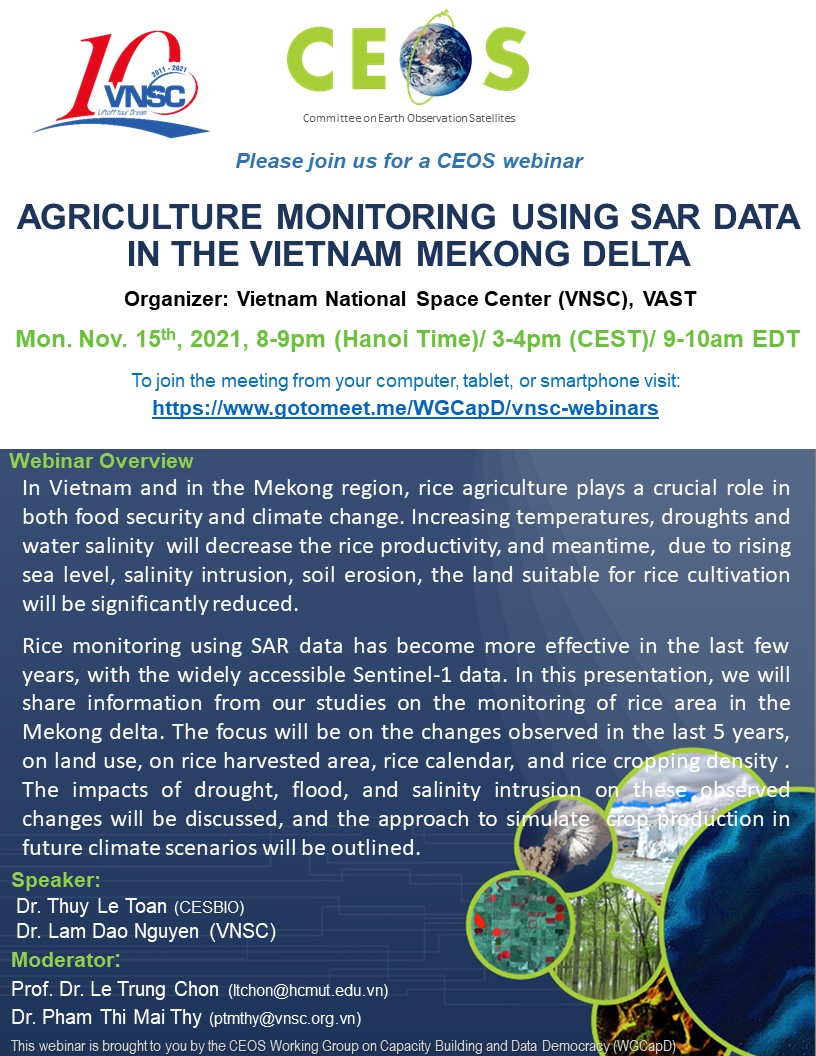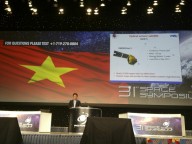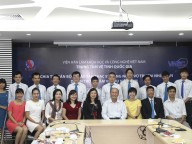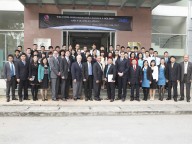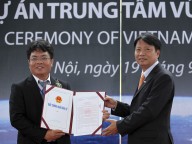The Vietnam Space Center (VNSC) organizes the 4th webinar in 2021 about “Agriculture monitoring in the Vietnam Mekong Delta using SAR data” on November 15th, 2021.
The event is in conjunction with VNSC and the Data Democracy and Capacity Building Group (WGCapD), the Earth Observation Satellite Commission (CEOS)
Abstract:
The countries in the Mekong region, and specifically Vietnam, are among the most affected by climate change. Over 50 years, the frequency and intensity of inundations, droughts, soil and water salinity have increased in the Mekong delta, causing negative impacts on different sectors, the most important being rice agriculture, which plays a central role in the country social and economic development.
In Vietnam and in the Mekong region, rice agriculture plays a crucial role in both food security and climate change. Increasing temperatures, droughts and water salinity will decrease the rice productivity, and meantime, due to rising sea level, salinity intrusion, soil erosion, the land suitable for rice cultivation will be significantly reduced.
It is essential in this context to monitor the impacts of climate change on rice agriculture, to advance our understanding, and to devise adaptation and mitigation strategies.
For monitoring spatial and temporal changes in rice crop, SAR data have been found the best Earth Observation data sources for tropical regions. Effective rice mapping and monitoring of rice growth requires systematically acquired, high resolution and cost effective SAR data. With the launch of Copernicus Sentinel-1A satellite in 2014 and Sentinel 1B in 2016, the required data, with 10-20 m resolution, acquired every 12 (or 6 days with two satellites), are now widely accessible at no cost.
In this presentation, we will present the work conducted in the Mekong delta in the last 5 years. We first introduce the rice mapping and monitoring methods, developed based on the physical content of the SAR backscatter of the rice fields. The maps will be used for the analysis of changes in land use, changes in harvested areas (due for example to drought in 2016 and 2020), change in cropping density and change in crop calendar. The impacts of drought, flood, and salinity intrusion on these observed changes will be discussed, and the approach to simulate crop production in future climate scenarios will be outlined. The outcome of such study can support decisions for adaptation and mitigation.
The speaker: Dr. Le Toan Thuy (CESBIO, France)
2. Dr. Lam Dao Nguyen (VNSC)
Detail:
To join the meeting from your computer, tablet, or smartphone visit: https://www.gotomeet.me/WGCapD/vnsc-webinars
Please share this activity with your colleagues and students who may be interested in attending.
